Oxycodone
$180.00 – $780.00
Buy Oxycodone Online
Buy Oxycodone Online Without Prescription. Oxycodone is an opioid painkiller that is sometimes referred to as a narcotic. Oxycodone is used for the treatment of moderate to severe pain. The extended-release formulation of oxycodone is intended for continuous pain management and should not be taken as required. Buy Oxycodone Online Without Prescription.
Buy Oxycodone Online Without Prescription
Buy Oxycodone Online Without Prescription. Oxycodone is an opioid painkiller that is sometimes referred to as a narcotic. Oxycodone is used for the treatment of moderate to severe pain. The extended-release formulation of oxycodone is intended for continuous pain management and should not be taken as required. Buy Oxycodone Online Without Prescription.
Warnings
If you have severe asthma or breathing issues, or a blockage in your stomach or intestines, you should not use oxycodone. MISUSE OF OPIOID MEDICINE CAN CAUSE ADDICTION, OVERDOSE, OR DEATH. Store the medicine in a location that is inaccessible to others. Oxycodone usage during pregnancy may trigger withdrawal symptoms in the infant that are life-threatening. It is possible to have fatal adverse effects if you combine opioid medications with alcohol or other substances that induce sleepiness or decrease your breathing. Oxycodone may reduce or halt breathing. This is more common in older or unwell people, although anybody using this medication may experience it.
Before taking this medicine
You should not use oxycodone if you are allergic to it, or if you have:
- severe asthma or breathing problems; or
- a blockage in your stomach or intestines.
You should not use this medicine if you are already using a similar opioid medicine and are tolerant to it. Do not use this medicine if you have used an MAO inhibitor in the past 14 days, such as isocarboxazid, linezolid, phenelzine, rasagiline, selegiline, or tranylcypromine or have received a methylene blue injection. Most brands of oxycodone are not approved for use in people under the age of 18. OxyContin should not be given to a child younger than 11 years old. To make sure this medicine is safe for you, tell your doctor if you have ever had:
- breathing problems, sleep apnea;
- a head injury, brain tumor, or seizures;
- drug or alcohol addiction, or mental illness;
- lung disease;
- liver or kidney disease;
- thyroid disorder;
- adrenal disease (such as Addison’s disease;
- urination problems; or
- problems with your gallbladder or pancreas.
If you use opioid medications during pregnancy, your child may develop a tolerance to the drug. This might produce withdrawal symptoms in the newborn that are life-threatening. Babies born dependent on opioids may require several weeks of medical treatment. Inform your physician if you are pregnant prior to taking oxycodone. If you become pregnant while taking oxycodone, do not discontinue treatment without first consulting your doctor. You may need to gradually lower your medication dosage. Before taking oxycodone if you are nursing, see a physician. Inform your physician if you see extreme sleepiness or sluggish breathing in your breastfeeding infant.
How should I use oxycodone?
Take oxycodone precisely as directed. Follow the instructions on the label of your prescription drug and read any medication guidelines. Never take this medication in bigger quantities or for a longer duration than suggested. Inform your physician if you have an increased desire to take more oxycodone. Never share opioid medications, particularly with someone who has a history of substance misuse or addiction. MISUSE CAN CAUSE ADDICTION, OVERDOSE, OR DEATH. Store the medicine in a location that is inaccessible to others. Selling or distributing opioid medication is illegal. As soon as you begin using oxycodone extended-release, you must stop taking any other opioid painkillers that are used continuously. Consume with a meal. To prevent a potentially lethal overdose, ingest the capsule or pill in its entirety. Do not crush, chew, break, dissolve, or open.
If you are unable to take a capsule whole, you may open it and sprinkle the contents into pudding or applesauce. Immediately ingest the combination without chewing. It cannot be saved for subsequent use. Never crush or break an oxycodone tablet in order to inhale the powder or combine it with liquid in order to inject the medicine intravenously. This might result in death. Carefully measure liquid medications. Use the accompanying dosage syringe or medication dose-measuring equipment (not a kitchen spoon). You should not abruptly discontinue taking oxycodone. Follow your physician’s recommendations about the progressive reduction of your dosage. Keep at room temperature and out of the reach of heat, moisture, and light. Monitor your medications. Oxycodone is a substance of abuse, and you should be informed if somebody is misusing or abusing your medication. Do not retain unused opioid medicine. A single dosage of this medication may be fatal if taken accidentally or inappropriately. Ask your pharmacist where a medication take-back program is located. If there is no program for the return of unneeded medications, flush them down the toilet.
What happens if I miss a dose?
Since oxycodone is used for pain, you are not likely to miss a dose. Skip any missed dose if it is almost time for your next dose. Do not use two doses at one time.
What happens if I overdose?
Get the immediate medical treatment or dial 1-800-222-1222 to reach the Poison Help line. An oxycodone overdose may be lethal, particularly in children and other individuals who use the drug without a prescription. Symptoms of an overdose may include extreme sleepiness, pinpoint pupils, slowed respiration, or cessation of breathing. Your physician may advise you to carry naloxone (a drug used to counteract an opioid overdose) at all times. A caregiver may administer naloxone if you stop breathing or do not wake up. Your caretaker must still seek emergency medical assistance and may be required to administer cardiopulmonary resuscitation (CPR) on you while waiting for assistance to come. Naloxone is available for purchase from pharmacies and municipal health departments. Ensure that anybody caring for you is aware of the location of your naloxone and how to administer it.
What should I avoid while using oxycodone?
Do not drink alcohol. Dangerous side effects or death could occur. Avoid driving or operating machinery until you know how this medicine will affect you. Dizziness or severe drowsiness can cause falls or other accidents. Avoid medication errors. Always check the brand and strength of oxycodone you get from the pharmacy.
Oxycodone side effects
Get immediate medical attention if you have the following symptoms of an allergic response to oxycodone: hives; difficulty breathing; and swelling of the face, lips, tongue, or neck. Opioid medications, such as oxycodone, may slow or halt breathing, and death is a possibility. If you experience slowed breathing with lengthy pauses, bluish lips, or difficulty waking up, the person caring for you should provide naloxone and/or seek emergency medical treatment. See your doctor immediately if you have:
- noisy breathing, sighing, shallow breathing, breathing that stops during sleep;
- a slow heart rate or weak pulse;
- cold, clammy skin;
- a light-headed feeling, like you, might pass out;
- confusion, unusual thoughts or behavior;
- seizure (convulsions);
- low cortisol levels – nausea, vomiting, loss of appetite, dizziness, worsening tiredness or weakness; or
- high levels of serotonin in the body – agitation, hallucinations, fever, sweating, shivering, fast heart rate, muscle stiffness, twitching, loss of coordination, nausea, vomiting, diarrhea.
Serious breathing problems may be more likely in older adults and in those who are debilitated or have a wasting syndrome or chronic breathing disorders. Long-term use of opioid medication, such as oxycodone, may affect fertility (ability to have children) in men or women. It is not known whether opioid effects on fertility are permanent. Common oxycodone side effects may include:
- drowsiness, dizziness, tiredness;
- headache;
- constipation, stomach pain, nausea, vomiting; or
- itching, red eyes, or flushing.
This is not a complete list of side effects and others may occur. Call your doctor for medical advice about side effects. You may report side effects to FDA at 1-800-FDA-1088.
What other drugs will affect oxycodone?
You may get breathing difficulties or withdrawal symptoms if you begin or stop using certain other medications. Inform your physician if you are concurrently using an antibiotic, antifungal medication, heart or blood pressure medication, seizure medication, or medication to treat HIV or hepatitis C. Opioid medications may interact with a number of other medications, resulting in hazardous adverse effects or even death. Make sure your physician is aware if you also use:
- other opioids – opioid pain medicine or prescription cough medicine;
- sedative medications including alprazolam or Xanax, clonazepam or Klonopin, diazepam or Valium, lorazepam or Ativan, temazepam or Restoril and others;
- sleeping pills;
- muscle relaxants or tranquilizers;
- medicine for depression, anxiety, or other mental illness;
- medicine for Parkinson’s disease;
- migraine headache treatment; or
- medications used for the prevention of nausea and vomiting.
- cold or allergy medicines, bronchodilator asthma/COPD medication, or a diuretic (“water pill”);
- medicines for motion sickness, irritable bowel syndrome, or overactive bladder;
This list is not complete and many other drugs may interact with oxycodone. This includes prescription and over-the-counter medicines, vitamins, and herbal products. Not all possible drug interactions are listed here.
| Quantity | 60 pills of 30mg at $4.00/pill, 60 pills of 15mg at $3.00/pill, 90 pills of 30mg at $3.75/pill, 90 pills of 15mg at $2.75/pill, 120 pills of 30mg at $3.50/pill, 120 pills of 15mg at $2.50/pill, 180 pills of 30mg at $3.25/pill, 180 pills of 15mg at $2.25/pill, 240 pills of 30mg at $3.00/pill, 240 pills of 15mg at $2.00/pill |
|---|
1 review for Oxycodone
Add a review Cancel reply
Related products
Pain Relief
Pain Relief
Pain Relief
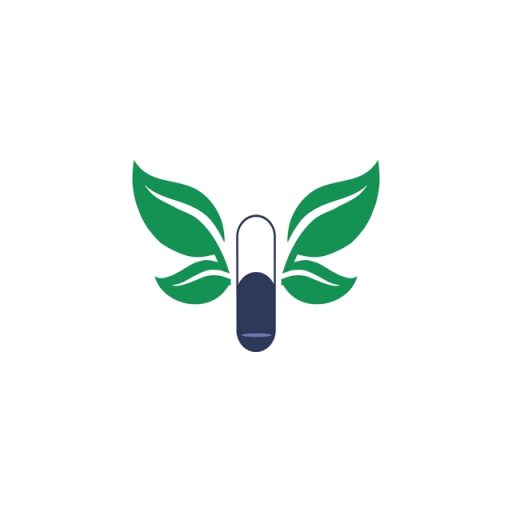

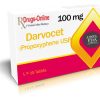
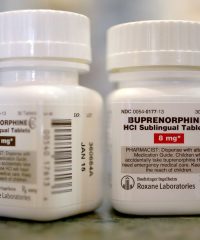
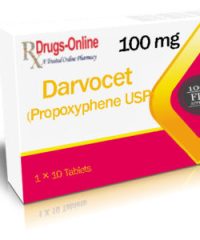

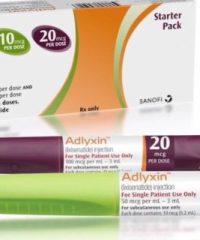
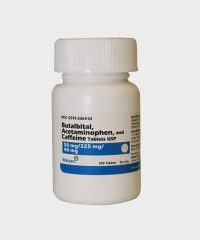
Iris –
A great product, which is exceptionally easy to be used. Recommend.